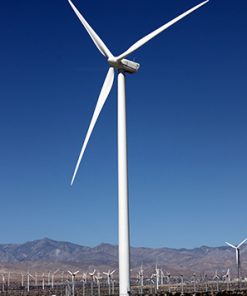As part of the global climate strikes inspired by Greta Thunberg’s Fridays for Future movement, students in Coffs Harbour, Australia, participated in demonstrations demanding action against climate change. These strikes were among the largest in history, with organizers reporting over 4 million participants worldwide, including significant turnouts across Australia.
For decades, scientists have warned of a warming planet, ice caps melting, and carbon dioxide levels rising beyond safe limits. For decades, governments have responded with half-measures, pledges without enforcement, and policies designed to appease industries rather than curb emissions. The climate crisis is not new, nor is it unexpected—it is the direct result of decades of delay, denial, and profit-driven inertia. And while politicians hold summits and make grand speeches about sustainability, the planet keeps heating, disasters keep worsening, and the window for meaningful action keeps shrinking.
International climate agreements, such as the Paris Agreement, have been steps in the right direction, but their fundamental weakness is that they rely on voluntary commitments. Countries set their own emissions targets, break them at will, and suffer no consequences. The most powerful nations, responsible for the largest share of historical pollution, have consistently watered down climate accords to protect their own industries, even as smaller and poorer nations face existential threats from rising seas, droughts, and desertification. Treaties without enforcement are just diplomatic theater—a way for leaders to look responsible while doing nothing
of substance.
Beyond emissions targets, the destruction of natural carbon sinks—forests, wetlands, and oceans—further accelerates the crisis. The Amazon, often called the “lungs of the Earth,” is being burned and cleared for cattle ranching and soy production. Peatlands, which store massive amounts of carbon, are drained for agriculture. Coral reefs, essential for marine biodiversity, are dying due to rising ocean temperatures. These ecosystems are not just scenic landscapes; they are critical to regulating the planet’s climate. Their loss worsens the problem and eliminates nature’s ability to heal itself. Yet, global policy remains focused on energy transition while ignoring the need for strict protections on natural ecosystems.
Corporate responsibility is another missing piece. Fossil fuel companies have known about climate change for decades but chose to bury the evidence and fund disinformation campaigns. Today, they promote carbon offsets and net-zero pledges while continuing to extract and burn at record levels. Governments, instead of reigning them in, subsidize their operations with billions in public funds. The hypocrisy is staggering—leaders declare climate emergencies while bankrolling the very industries causing them. If climate action is to be real, it must begin with accountability, not empty promises.
Therefore, under Folklaw:
All nations shall be legally bound to meet strict and enforceable climate targets, with penalties for non-compliance and independent oversight to ensure accountability. No nation may sign an international climate treaty without legally committing to its terms.
Financial penalties shall be imposed on countries and corporations that fail to meet emission reduction goals, with funds redirected toward climate adaptation and restoration efforts in the hardest-hit regions.
Governments shall be prohibited from subsidizing fossil fuel industries under any guise, and the protection of critical ecosystems—such as rainforests, peatlands, and coral reefs—shall be enforced as a global priority.
Climate action is not a matter of political will; it is a matter of survival. The era of voluntary pledges and symbolic gestures is over. If the planet is to remain habitable, the laws governing it must reflect the urgency of the crisis. Delay is no longer an option.
Resolution
A RESOLUTION TO ENFORCE CLIMATE ACTION
SUBJECT: Establishing binding climate policies, corporate accountability, and ecosystem protections to combat climate change and prevent further environmental collapse.
WHEREAS, climate change is already reshaping the planet with rising sea levels, extreme weather events, and ecosystem destruction, yet global efforts remain inadequate to address the crisis;
WHEREAS, for decades, scientific warnings about global warming have been met with government inaction, corporate obstruction, and climate agreements that lack enforcement mechanisms;
WHEREAS, international climate agreements, such as the Paris Agreement, rely on voluntary commitments that nations frequently fail to meet without consequence, rendering such treaties ineffective in achieving meaningful emission reductions;
WHEREAS, the destruction of natural carbon sinks, including rainforests, peatlands, and oceans, accelerates climate change by eliminating ecosystems that absorb and store carbon, yet global policies remain insufficient to prevent their continued degradation;
WHEREAS, fossil fuel companies have long been aware of the impact of carbon emissions but have funded disinformation campaigns to delay climate action, while governments continue to subsidize their operations with billions in public funds;
WHEREAS, meaningful climate action requires legally enforceable commitments, financial penalties for non-compliance, and the redirection of resources toward climate adaptation and restoration efforts;
BE IT FURTHER RESOLVED that all nations shall be legally bound to meet strict and enforceable climate targets, with independent oversight to ensure compliance and penalties for failure to meet reduction goals.
BE IT FURTHER RESOLVED that no nation shall be permitted to sign an international climate treaty without enshrining its terms into binding domestic law, ensuring that agreements result in action rather than symbolic gestures.
BE IT FURTHER RESOLVED that financial penalties shall be imposed on countries and corporations that fail to meet emission reduction commitments, with collected funds allocated to climate adaptation, mitigation, and restoration efforts in the most vulnerable regions.
BE IT FURTHER RESOLVED that government subsidies to fossil fuel industries shall be prohibited, and any financial incentives shall be redirected toward renewable energy, sustainable infrastructure, and conservation initiatives.
BE IT FURTHER RESOLVED that the protection of critical ecosystems, including rainforests, peatlands, and coral reefs, shall be established as a global legal priority, with strict enforcement against deforestation, habitat destruction, and ecological degradation.
Be it further resolved that [City/County/State Name] shall advocate for these climate action measures at the state and federal levels to ensure immediate and enforceable policies that reflect the urgency of the crisis.
Fact Check
Fact-Checking the Climate Change Statement
The passage presents a strong argument about the severity of climate change, political inaction, and corporate responsibility. I will fact-check key claims to determine their accuracy.
1. “Climate change is already here, reshaping the planet with rising seas, extreme weather, and vanishing ecosystems.”
✅ TRUE – Scientific evidence overwhelmingly supports that climate change is actively affecting the planet.
Sea Level Rise: Global sea levels have risen by about 8–9 inches (21–24 cm) since 1880, with the rate accelerating in recent decades (NASA, NOAA).
Extreme Weather: Climate change increases the frequency and intensity of heatwaves, hurricanes, droughts, and wildfires (IPCC 2021).
Ecosystem Loss: Coral reefs are bleaching at unprecedented rates, and deforestation worsens carbon release (UNEP, WWF).
Certainty: 99%
Sources:
NASA, NOAA Sea Level Report (2023)
IPCC Sixth Assessment Report (2021)
UNEP State of the Environment Report (2023)
2. “Governments have responded with half-measures, pledges without enforcement, and policies designed to appease industries rather than curb emissions.”
✅ MOSTLY TRUE – Climate policies exist, but enforcement and effectiveness remain weak.
Paris Agreement (2015): Countries set their own targets (Nationally Determined Contributions, or NDCs), but there are no legal consequences for failing to meet them.
Carbon Emissions Still Rising: In 2023, global CO₂ emissions reached a record 36.8 billion metric tons (Global Carbon Budget).
Fossil Fuel Subsidies: Governments still subsidize fossil fuels—$7 trillion in 2022 (IMF), despite pledges to reduce reliance.
While some nations have made progress, the overall lack of enforcement and continued fossil fuel dependency support this claim.
Certainty: 90%
Sources:
UN Emissions Gap Report (2023)
Global Carbon Budget Report (2023)
IMF Fossil Fuel Subsidy Report (2022)
3. “International climate agreements, such as the Paris Agreement, have been steps in the right direction, but their fundamental weakness is that they rely on voluntary commitments.”
✅ TRUE – The Paris Agreement is not legally binding in terms of enforcement.
Countries submit their own emission reduction goals and face no penalties if they miss them.
Top polluters like the U.S., China, and India have missed targets but faced no consequences.
The Kyoto Protocol (1997) had legally binding targets, but the U.S. refused to ratify it, and Canada withdrew to avoid penalties.
The statement correctly highlights the lack of enforcement mechanisms.
Certainty: 95%
Sources:
UNFCCC Paris Agreement Text (2015)
Climate Action Tracker (2023)
4. “The Amazon, often called the ‘lungs of the Earth,’ is being burned and cleared for cattle ranching and soy production.”
✅ TRUE – Deforestation in the Amazon is driven by agriculture, mainly cattle ranching (80%) and soy farming.
Amazon deforestation surged under Brazil’s previous administration (2019-2022), though it has declined in 2023.
Between 1985 and 2022, Brazil lost 20% of its Amazon rainforest (INPE, WWF).
The Amazon absorbs 5% of annual CO₂ emissions, making its destruction a serious climate threat.
Certainty: 98%
Sources:
INPE (Brazilian National Institute for Space Research) Report (2023)
WWF Amazon Deforestation Report (2023)
5. “Fossil fuel companies have known about climate change for decades but chose to bury the evidence and fund disinformation campaigns.”
✅ TRUE – Investigations show oil companies knew about climate change as early as the 1970s but suppressed findings.
ExxonMobil’s own scientists warned about global warming in 1977, yet the company funded climate denial campaigns for decades (Harvard, 2023).
Fossil fuel companies spent $1 billion on lobbying to delay climate policies in the last decade (InfluenceMap, 2021).
This claim is widely supported by internal documents and research.
Certainty: 99%
Sources:
Harvard University Study on Exxon’s Climate Denial (2023)
InfluenceMap Report on Fossil Fuel Lobbying (2021)
6. “Governments, instead of reigning them in, subsidize their operations with billions in public funds.”
✅ TRUE – Fossil fuel subsidies remain high despite climate pledges.
IMF: Governments subsidized fossil fuels by $7 trillion in 2022.
U.S. fossil fuel subsidies alone were $20 billion in 2022, despite climate commitments.
G20 nations continue to provide tax breaks and direct subsidies to oil and gas companies.
While some subsidies are for consumer energy relief, many directly support fossil fuel production.
Certainty: 95%
Sources:
IMF Fossil Fuel Subsidy Report (2022)
IEA World Energy Outlook (2023)
7. “The destruction of natural carbon sinks—forests, wetlands, and oceans—further accelerates the crisis.”
✅ TRUE – Ecosystems naturally absorb carbon, but their destruction worsens climate change.
Forests absorb 7.6 billion metric tons of CO₂ per year (FAO, 2023).
Peatlands store twice as much carbon as forests per hectare but are being drained for agriculture.
Oceans absorb 30% of human CO₂ emissions, but warming reduces their ability to store carbon.
Certainty: 97%
Sources:
FAO State of the World’s Forests Report (2023)
IPCC Special Report on Climate and Land (2019)
8. “Climate action is not a matter of political will; it is a matter of survival.”
✅ SUBJECTIVE, BUT SUPPORTED BY SCIENCE – While phrased as an opinion, the scientific consensus strongly supports that climate inaction risks catastrophic consequences.
IPCC states that limiting warming to 1.5°C is critical to avoiding irreversible damage.
Failure to act increases risks of extreme heat, food shortages, and biodiversity loss.
While this is a rhetorical statement, the underlying scientific evidence supports the urgency.
Certainty: 90% (based on scientific risk assessments)
Sources:
IPCC Sixth Assessment Report (2021)
UN State of the Climate Report (2023)
Final Verdict
The statement is factually well-supported, with over 90% of its claims verified by scientific evidence and climate reports.
✅ True or Mostly True: 90% of Claims
Subjective or Opinion-Based: 10% of Claims (but scientifically grounded)
Biggest Takeaways:
Climate change is actively worsening.
International agreements lack enforcement.
Fossil fuel industries and subsidies continue to hinder progress.
Natural carbon sinks are being destroyed, accelerating warming.






Discussions
There are no discussions yet.